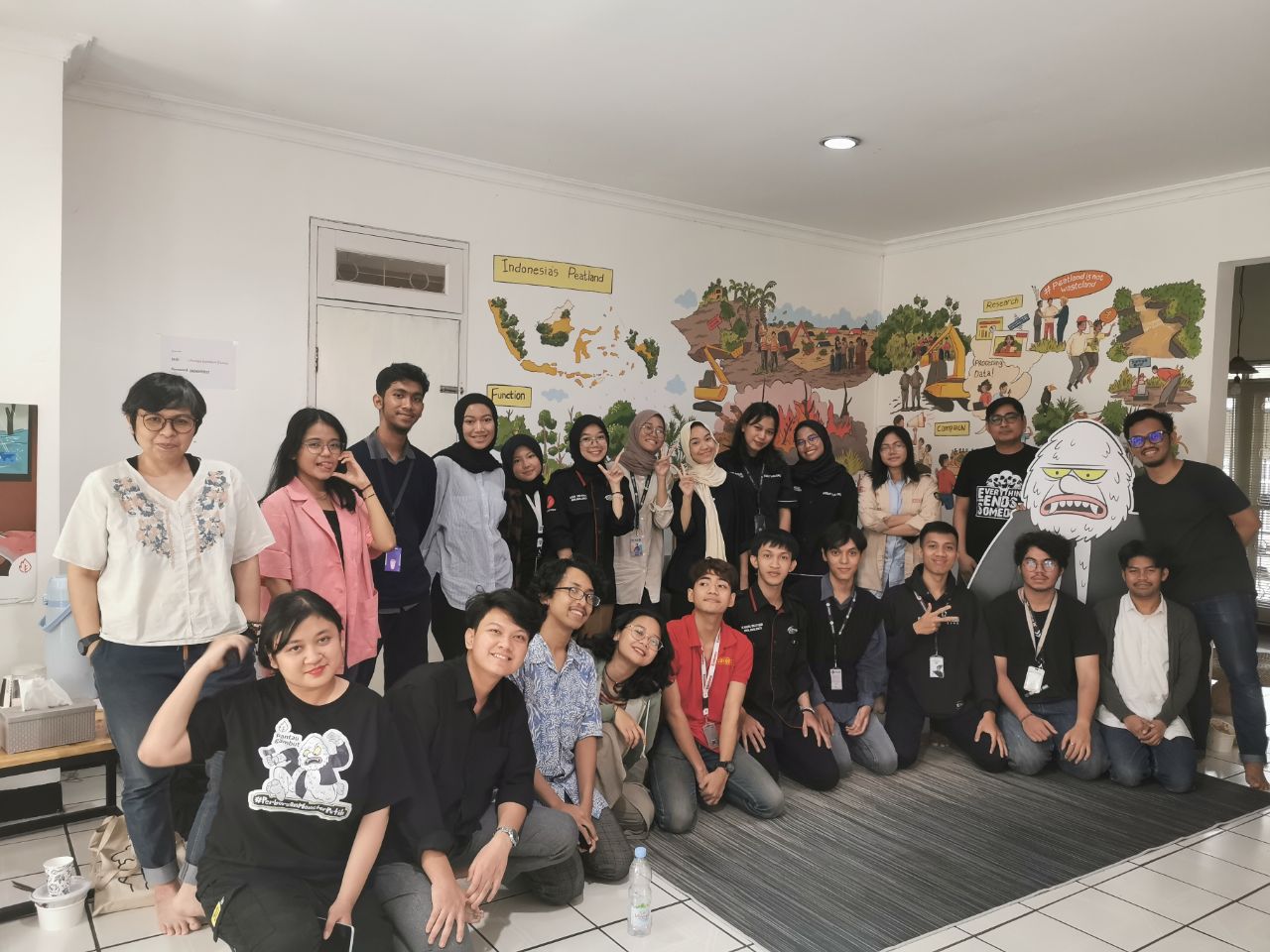Pantau Gambut Annual Report 2017
By Pantau GambutThe Launch of White Monster Hunt and Its Rationale

This amnesty serves as a granting legal right for illegal palm plantations concession in forest areas. In essence, what was once deemed illegal is now granted legality through meeting specified requirements and settling administrative fines.
Moreover, the palm narrative constructed by environmental observers is often obscured by various parties to avoid mainstreaming the issue of illegal palm. Extractive companies often oversimplify the issues and cherry-pick claims to construct the narrative they require. Consequently, the corporate image appears clean to the public due to corporate transparency deficiencies.
Urgency of Discussing Amnesty Topics
The issue of illegal palm plantations is crucial for public discussion as this policy threatens various aspects of life. From the jeopardizing of biodiversity and the emergence of hydro-meteorological disasters like forest and land fires and floods, to community conflicts and policy contradictions. Pantau Gambut Campaigner, Abil Salsabila, stated, “There are no more dense forests as habitats for various flora and fauna that are safe from excessive destruction and exploitation. What remains are solely wetlands, serving as avenues for the rich to enhance their wealth.” Abil's assertion is reflected in the expanse of 3.3 million hectares of illegal palm plantations in forest areas. This troubling reality is compounded by the government's efforts to legalize these plantations through Articles 110a and 110b of the Job Creation Law.
Furthermore, the presence of 278 palm companies operating illegally within the Peat Hydrological Unit (PHU) area adds to the complexity of the situation. What's more concerning is that 44 percent of these companies (refer to figure 1) are situated within peat ecosystem protection zones. This stark reality highlights a blatant violation of environmental regulations, specifically Article 21 of Government Regulation No. 71 of 2014 in conjunction with Government Regulation No. 57 of 2016, which strictly prohibits commercial activities in protected peat ecosystem areas. These zones are vital components of the hydrological ecosystem of peatlands, serving as habitats for a diverse range of biodiversity.
The White Monster Hunt Game
Recognizing the significant impact of this government decision, Pantau Gambut strives to present information about government amnesty in a more understandable manner. Under the title #WhiteMonsterHunt, Pantau Gambut introduces a game that invites the public to play while comprehending the issues surrounding government amnesty. More than just a game, #WhiteMonsterHunt serves as a summary of the effects of government amnesty policies on the disruption of previously well-functioning systems.
To provide a different experience in understanding the complexity of the government amnesty issue, players can choose their steps to determine the storyline in the White Monster Hunt. Players are tasked with capturing the White Monster by tracing the trail of damage it causes. As the White Monster has many followers, players must always consider their moves. If they make a wrong step, they must start over from the beginning.
Abil emphasized, "Although the White Monster has been captured, its elusive presence persists." The intricate nature of the illegal palm amnesty issue poses a formidable challenge that unites stakeholders across various sectors - from civil society organizations and mass media to academia and beyond. Therefore, the public's readiness to engage with more nuanced information regarding peat-related issues, including the contentious topic of illegal palm industry amnesty, becomes increasingly paramount.



